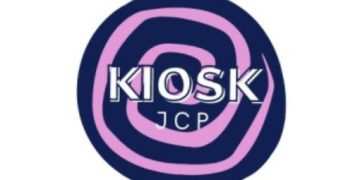Among the many responsibilities of the Department of Basic Education Pretoria, one of the most important is to ensure that there are enough school places for all children, including disadvantaged groups. To achieve this goal, the Department has to make sure that the school facilities in the area are adequate, and that there are enough teachers. This will also ensure that the students are able to receive a quality education.
Overview
During a visit to the Department of Basic Education in Pretoria, members of the Portfolio Committee on Basic Education were presented with an overview of the Department’s work. The two-day workshop was conducted by senior officials from six branches of the Department. The meetings focused on the achievements of the Department in the previous financial year and key activities undertaken by each branch.
The Department received offers of support from bilateral and multilateral agencies. It also had a number of agreements in place with a range of organisations. These were analysed for their financial and human implications. The Department’s relationships were scrutinised to ensure that they were in keeping with South Africa’s educational interests.
Strategic outcomes
Among the strategic objectives of the Eastern Cape Department of Education is the development of skills in its workforce. While the Department has made efforts to improve its educator performance through training programmes, there is a shortage of skills and limited access to such programmes in the Eastern Cape.
This problem has led to inadequate outcomes for learners in the province. It is estimated that only one in ten learners has demonstrated the minimum mathematics proficiency required for Grade-cohort.
However, the ECDoE has failed to adequately implement training programmes that address the skills deficit. This may have impacted negatively on the Department’s strategic plan.
Bursary scheme
Whether you are a high school student or a graduate, you can apply for the Funza Lushaka Bursary Scheme. This programme offers financial assistance to South African students interested in pursuing a teaching career. The scheme is a multi-year commitment and covers tuition, accommodation, living expenses and registration fees.
The Fundza Lushaka bursary scheme is offered by the Department of Basic Education, and is intended to attract high performing students into teaching. In order to qualify for the scheme, you must meet certain national selection criteria. You must be accepted into a BEd or PGCE qualification at a public university, and you must work in a public school in South Africa for the same number of years as the amount of funding you have been awarded.
Quality of education
Despite South Africa’s recent progress on universal access to education, the quality of education remains a major concern. The quality of education is influenced by factors such as teacher shortages, inadequate school infrastructure, and overcrowded classrooms.
In a study conducted by the Department of Basic Education, it was found that overcrowded classrooms were associated with poor academic performance. The study focused on the effects of overcrowded Foundation Phase classrooms in the Tshwane-West district.
The overcrowded classrooms were accompanied by poor academic performance and a learner-educator ratio of 33:1. This was attributed to inadequate school infrastructure, lack of trained teachers, and grade repetition.
School infrastructure
Despite having the right funding, the basic education sector has not demonstrated the urgency to address the infrastructure crisis. The National Development Plan (NDP) requires schools to meet minimum standards for their infrastructure. However, many schools lack adequate facilities and are in dire need of repair.
The Department of Basic Education has developed a national policy on school infrastructure. It has identified four key areas that should be addressed: the provision of basic water, electricity, toilets and security. The sector has also committed to eradicating 496 structures that are inappropriate for the school environment.
Several organisations have submitted comments on the draft of the Norms and Standards. Among them are the Education Employees Association, Equal Education Law Centre and the LRC.
Local languages
Traditionally, white children in South Africa received bilingual education. But the Department of Basic Education has announced plans to use indigenous African languages as the medium of instruction for Grades 1 to 8. The announcement has not been well received. Some commentators argue that using African languages as the medium of instruction can’t work. In fact, local actors believe that the state is not serious about language policy. In the 1970s, students protested against the Dutch-based creole Afrikaans, which was used by the white government. In the mid-1970s, students also protested against the bantustans, which




















































